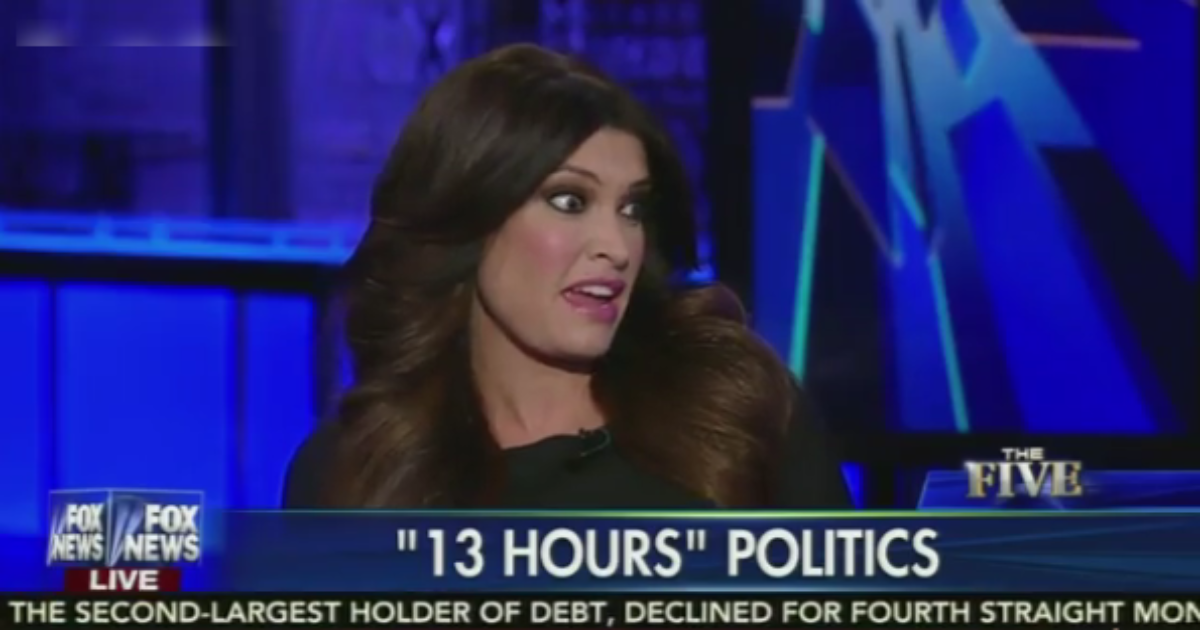There is a simple, yet nearly impossible, recipe to follow in order to enact large-scale legislative change in America, for better or for worse. The first ingredient you need is a national disaster. The New Deal brought about sweeping changes in America, but that only happened as a result of the Great Depression. Our current surveillance state was put into hyperdrive as the result of the terrorist attacks of 9/11 and the never ending “War on Terror.” But the reforms of both eras were accomplished because they also contained the second necessary ingredient for success: Unilateral party control over both the Executive and Legislative branches of government.
Given the complexity of this recipe, change is slow moving. A few pieces of good legislation here, a few bad ones there, and the net effect is almost unnoticeable.
So if you’re a corporation looking to check off all of the items on your corporate shopping list, you can’t sit around and wait for all of these ingredients to hop into your cart – you’d starve to death before that happens. Instead, you try for a simpler recipe that has fewer ingredients, thereby calling for fewer cooks in the kitchen.
This is the scenario that has played itself out with local judges for the last few years. Corporations have found out that it is easier to buy a small time politician at the local level, which means that they are able to better tailor their agenda.
If you’re a corporation, it is a logical step. The Supreme Court currently holds a corporate-friendly majority; All but a handful of politicians in Washington, D.C. have some sort of corporate ties either through businesses or campaign donations (so you don’t have to worry about what kind of judges will be appointed from this crowd); Trade deals have given them the authority to overstep national laws in other countries, but they still have to break down a few regulatory hurdles at home.
Here’s the scenario: Suppose Exxon wants to start a fracking project on a piece of land in North Dakota that is protected by a local law forbidding the process. The oil company can either spend millions, even billions, of dollars on direct political campaign donations and lobbying at the federal level in the hopes that a nation-wide fracking permit would be put into motion. Or, they can spend a few thousand dollars on a judicial race in rural North Dakota, buy a local judge willing to throw out the environmental protection law, and have their drilling rigs in place and be making money before the case can even be appealed. It may not be a large-scale victory, but it is a quick victory that will immediately begin yielding profits – profits that will then go towards buying the next local judge a few towns over.
As much as 90% of litigation in the United States is decided in local and state courts, the vast majorities of these cases involve a corporation of some size. In terms of number, that’s about 100 million cases – from traffic injuries to oil spills – that take place in lower level courts. So without even worrying about federal appeals courts or even the U.S. Supreme Court, corporations can give obscene amounts of money to local judges, which insures that they are covered for 90% of the litigation that they may face.
With roughly 30,000 judges serving in these levels, 25,500 judges face elections, serving up the opportunity for corporate America to by up 85% of the lower judiciary. Only 11 states and the District of Columbia do not have direct election of judges.
In the week before the 2014 midterm elections, more than $1 million was spent on judicial campaign ads (mostly negative ads). The grand total for judicial election spending in 2014 topped $15 million.
So who’s buying? The term “corporation” is thrown around so much that it really has lost all meaning. These aren’t nameless, faceless groups buying justice; these are brand names that we use everyday, and special interest groups that we constantly battle against.
The first group to really understand the power of court-buying was the tobacco industry. Beginning in the late 80’s and early 90’s, R.J. Reynolds, Phillip Morris, and Lorillard began funneling money into state judicial races, right about the time that they were facing billions of dollars in lawsuits. The idea was to stop the suits at the state levels and bleed law firms dry during the appeals process.
While they may not have been as successful as they liked, the idea quickly caught on with the U.S. Chamber of Commerce, and so began their war on trial lawyers.
The Chamber had an easier time funneling money into elections, as they aren’t a single group – they are every industry. By collecting the donations from their members and then donating, there isn’t any immediately visible conflict of interest.
Believe it or not, the Chamber and tobacco industry approach to judicial elections has been small potatoes compared to the Republican State Leadership Committee (RSLC.)
Mike Ludwig, writing for TruthOut, explained the effectiveness of the RSLC: The RSLC has helped Republicans fill seats in statehouses and legislatures across the country and spent $27 million on races in 42 states during the 2012 election season alone. The group now claims to be the only national political group that is focused on state-level judicial elections, which are traditionally nonpartisan affairs in many states…
The RSLC has laid out their plans as part of their “Judicial Fairness Initiative.” The ironically named plan is all about their perceived notion of “fairness” for corporations. The same corporations that pour money into their group every year. Corporations like Duke Energy, who received a 1,600% rate of return when they purchased a judge in West Virginia. Corporations like Koch Industries who wanted to unseat a judge in Montana, where they hope to expand their oil exploration activities. Corporations like State Farm who successfully placed a judge in Illinois that returned the favor by overturning millions of dollars worth of lawsuits against the company. Or Koch Industries again, when they spent hundreds of thousands of dollars to get rid of three Florida judges (this time they were successful.)
It really is as simple as this – name a corporation that you’ve done battle with in the courtroom, and you can find a judicial race that they’ve poured money into.
And guess what? It works!
Three separate studies have been released in the last 18 months that show that a judicial candidate who receives money from a corporation for their campaign will consistently and predictably issue more corporate-friendly decisions than their counterparts who did not receive money. But at least the public has caught on – a full 87% of Americans surveyed by The Brennan Center for Justice said that they believe that a judge taking money from industry will influence their rulings. And they couldn’t be more correct.
The bottom line is that the Judicial Branch of our government is packed to the brim with corporate, political hacks. There are a few bright spots out there, but not enough to turn the tide of pro-corporate, anti-consumer rulings that are flowing endlessly out of our court system.
Farron Cousins is the executive editor of The Trial Lawyer Magazine, a contributing writer at DeSmogBlog.com, and a frequent guest host for Ring of Fire on Free Speech TV. Follow him on Twitter @farronbalanced.


